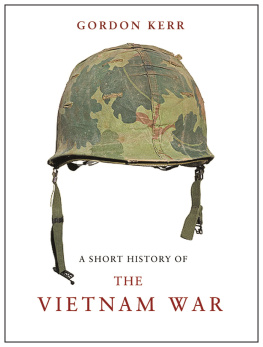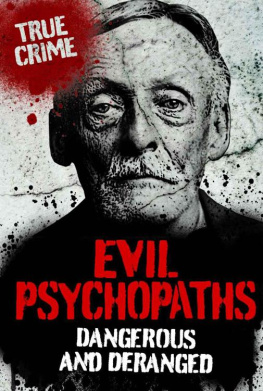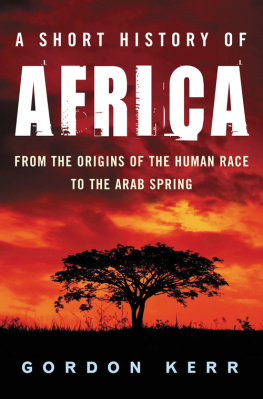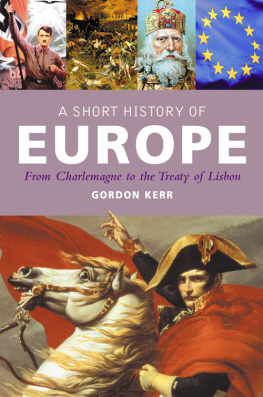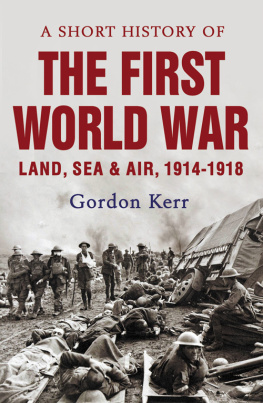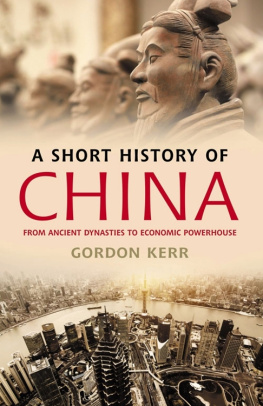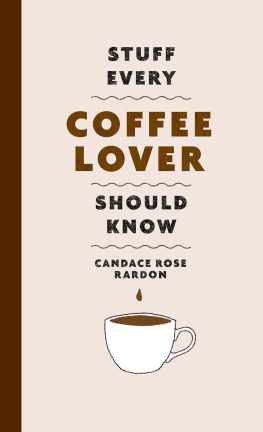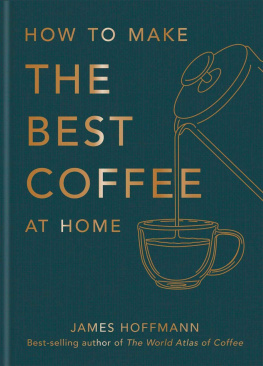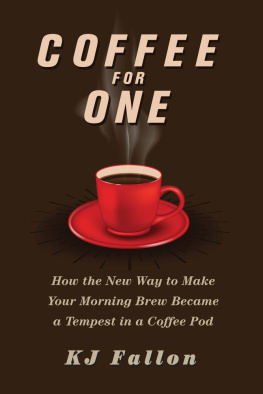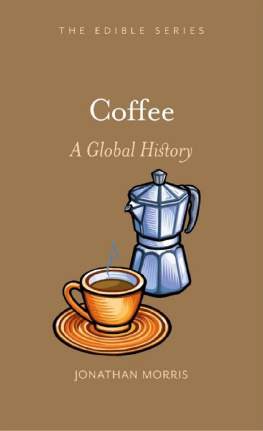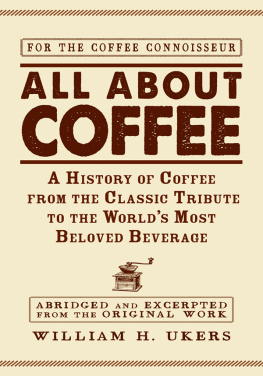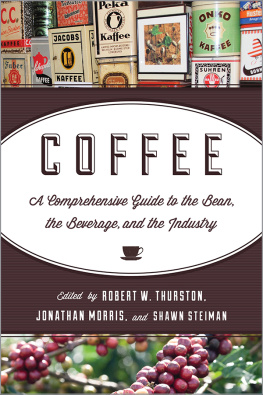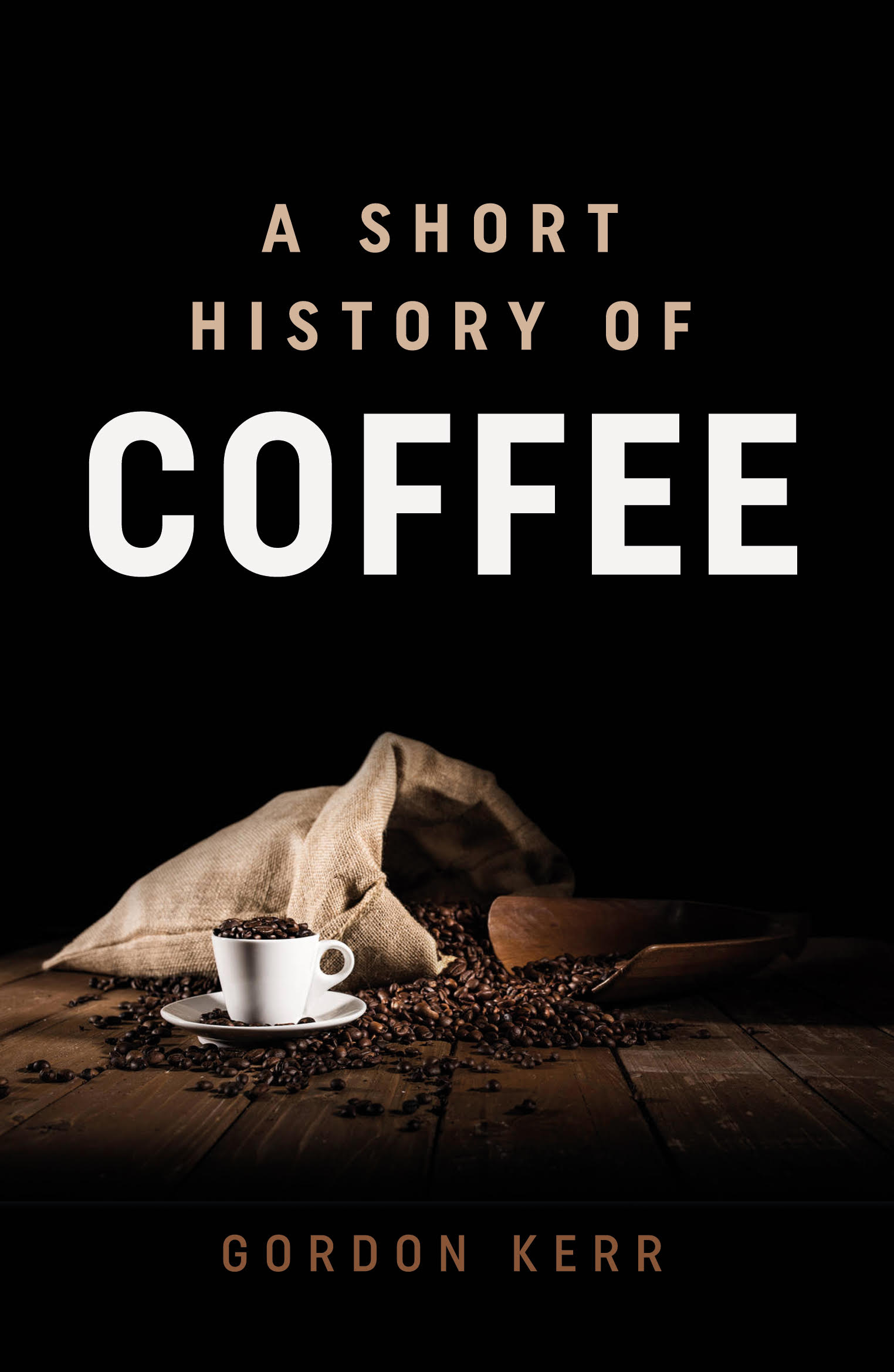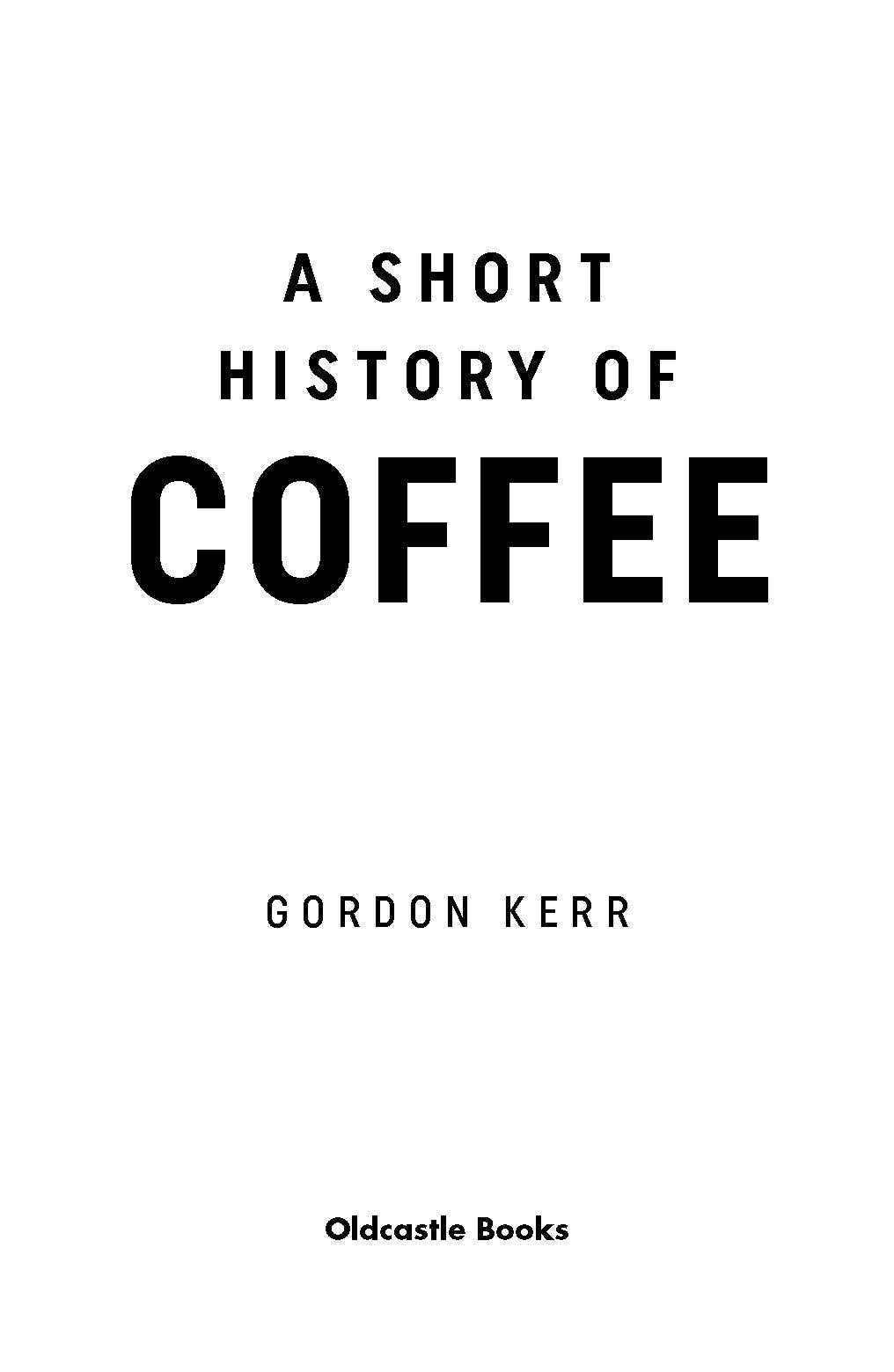For Andy Baker and Jamie Ludbrook,
lovers of the bean.
Wherever it has been introduced it has spelled revolution. It has been the worlds most radical drink in that its function has always been to make people think.
William Ukers, All About Coffee , 1922
Introduction
Coffee the worlds favourite beverage. We drink around 2 billion cups of the stuff a day around the globe: at home; in down-at-heel cafs; in hipster coffee shops; in plush hotels and restaurants after meals; on trains and planes; and, hurriedly, without spilling it, on our way to meetings or work. It has become a modern phenomenon, our high streets lined by branches of the customary global and national brands as well as the one-offs, the independents, often run by coffee connoisseurs, catering for true coffee aficionados who are hungry for knowledge about the origins of the coffee bean that was picked, roasted, ground and brewed to give them a few minutes of pleasure or repose in a busy day.
Coffee started off as a rumour, part of a tale spun by travellers returning from the East, often merchants bringing back goods that were new and exciting spices and silks, perhaps who also spoke of this dark, reviving beverage that the people of those parts seemed to set such store by. The merchants remarked on how coffee invigorated them, how it kept them awake when sleep was inconveniently beckoning and how it was the conduit for good conversation and relaxation and escape from the cares of the long, hot day.
When it came to Europe and America, it was embraced and gave birth to the coffee shop. The coffee shop was about more than just drinking coffee and whatever else was on offer. It became a place where men and it was men, because women were not welcome unless they were serving behind the counter could transact business and, as the great seventeenth century diarist, Samuel Pepys, found in London, meet the right sort of people. There was no finer place for effective seventeenth century networking than Garraways Coffee House or the Rainbow Coffee House in the City of London. Fortunes could be made and careers advanced over a cup of coffee, purchased for just a couple of pennies. Indeed, in both London and in the American colonies, coffee houses became serious places of business. Lloyds of London developed in Edward Lloyds Coffee House, the London Stock Exchange grew out of Jonathans Coffee House, and in Merchants coffee house, New York, the citys first financial institution, the Bank of New York, was created. Coffee houses were home to auctions, the sale of stocks and shares, and hubs of information about shipping and companies, as well as the latest gossip and intrigue about the royal court.
Momentous events were celebrated over cups of coffee in coffee houses but they were also created in them. In America, coffee houses were hotbeds of dissent in the eighteenth century, argument and discontent hanging in the smoky air. One of the most celebrated coffee-house taverns, the Green Dragon on Union Street in Boston became known as the headquarters of the Revolution, a meeting place for revolutionary generals itching to throw the British out of the 13 colonies, and Boston Tea Party conspirators planning their infamous action. Often the different loyalties of the clientele of coffee houses spilled over into outright violence. Debate over coffee stirred great emotions.
In France, too, the men behind the French Revolution aired their views over coffee and, indeed, the first act of the French Revolution, a stirring anti-government oration by the young journalist, Camille Desmoulins, took place outside Caf Foy in Paris. In London, too, radicals and rebels intrigued and plotted in coffee houses to such an extent that Charles II almost closed them all down.
But coffee houses were also cultured places and still are. In Paris, the Impressionists would meet and complain in the caf about their lack of sales and the disparagement of their art by critics. Writers, too, enjoyed the ambience of the coffee house and the bitter flavour of the dark drink.
Coffee also has a dark history, of course, and the slavery and exploitation that made fortunes for far too many can, and should, never be forgotten. The drink we have today is the result of a huge amount of suffering and loss of life. Wives were separated from husbands and children were ripped from the arms of their mothers in pursuit of the great wealth that coffee could bring. The fact that such exploitation still exists in parts of the world is reason enough for people to start questioning where their coffee comes from, as many who are eager participants in coffees third wave do.
A Short History of Coffee investigates the legends and myths, the places, and the interesting and often eccentric characters who have helped to make coffee a staple of our daily lives. The book investigates coffees origins in Ethiopia and Yemen and its spread through the Middle East before it was brought to Europe by intrepid travellers and merchants. As coffee became increasingly popular, coffee shops began to proliferate on the high streets and in the squares of towns and cities across Europe, creating new and exciting hubs of commerce, news and debate, where deals could be done and revolution could be incited. The book follows the development of this phenomenon and its growth in popularity through to the twenty first century explosion of coffee shop culture. It lifts the recyclable lid on the business as well as the pleasure of coffee. In the process, we learn that the story of our favourite drink is a frothy brew of business, politics, money and intrigue.
A young goatherd named Kaldi noticed one day that his goats, whose deportment up to that time had been irreproachable, were abandoning themselves to the most extravagant prancings. The venerable buck, ordinarily so dignified and solemn, bounded about like a young kid. Kaldi attributed this foolish gaiety to certain fruits of which the goats had been eating with delight. The story goes that the poor fellow had a heavy heart; and in the hope of cheering himself up a little, he thought he would pick and eat of the fruit. The experiment succeeded marvelously. He forgot his troubles and became the happiest herder in happy Arabia. When the goats danced, he gaily made himself one of the party, and entered into their fun with admirable spirit.
One day, a monk chanced to pass by and stopped in surprise to find a ball going on. A score of goats were executing lively pirouettes like a ladies chain, while the buck solemnly balanc-ed , and the herder went through the figures of an eccentric pastoral dance. The astonished monk inquired the cause of this saltatorial madness; and Kaldi told him of his precious discovery. Now, this poor monk had a great sorrow; he always went to sleep in the middle of his prayers; and he reasoned that Mohammed without doubt was revealing this marvelous fruit to him to overcome his sleepiness.
French version of the legend of Kaldi
Coffee joins men, born for society, in a more perfect union; protestations are more sincere in being made at a time when the mind is not clouded with fumes and vapors, and therefore not easily forgotten, which too frequently happens when made over a bottle.
Antoine Galland (1646-1715), French archaeologist and translator of The Arabian Nights
Origins
Ethiopia and a Boy and His Goats
The coffee plant has its origins in Abyssinia and Arabia, initially growing wild there, but its cultivation spread throughout the tropics. But at what point in distant history did it start its journey towards being a vital part of our daily routine? And how did it begin that journey? Was it a food to begin with or, perhaps, an infusion? Maybe it started out as a brew, or a medicine. Perhaps it was all of these at the same time.


